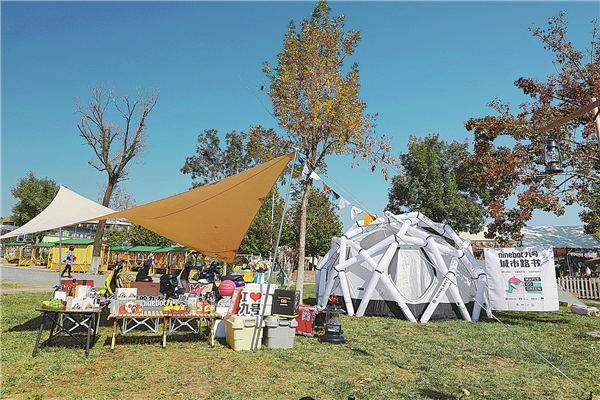

However, Dong sometimes prefers bushcraft, which refers to the practice of self-reliance in the wilderness, rather than camping with all the creature comforts.
By watching videos put online by campers he has learned skills such as wood carving and fire making. Instead of using a lighter he strikes a flint with a steel striker.
Once he tried to establish a canopy tent in a wild mountain to resist the wind, and light a bonfire with firewood he picked up there. However, he had to give up and drove back home in the wee hours because it was so cold, about-10 C.
"I wanted to know whether I could stay overnight there without staying in a warm tent," he says.
He also emphasizes the importance of fire safety and doing the right things in that regard. When you use a wood-burning stove in a tent for heating, he says, you have to make sure the tent is well-ventilated and install a carbon monoxide alarm.
Like him, more and more Chinese have been getting into the habit of camping in various ways, especially since COVID-19 broke out in early 2020.
The Chinese tourism website Mafengwo recently published a survey on camping in which 74 percent of campers interviewed were from first-tier cities, and Beijing, Shanghai, Guangzhou in Guangdong province and Chengdu in Sichuan province were the top four source cities of campers.
Many said they liked to go cycling, do yoga and play with a flying disk while camping. Some said they prefer campsites that allow them to enjoy the stars and stay overnight in areas whose barren landscapes could well be on Mars. When they camp near a lake they ride paddleboard or do yoga, they said.
Campsites are offering many different activities, some of them exotic, to attract tourists.
Sunshine Valley Nature Village is a holiday resort in suburban Beijing that targets those who were born in the 1980s and 1990s, with their children aged no more than 12.